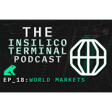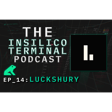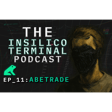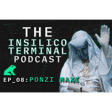
Insilico Terminal Podcast Episode 5 - VNTGPRN
In this episode, V discusses developing as a trader through the 2021–22 bear market and how a macro framework shapes his approach. He breaks down positioning vs prediction, interest rate differentials, and carry trades, while exploring how macro conviction translates into intraday execution. The conversation covers narratives, data, Fed policy, crypto rotations, and possible next bear market scenarios — ending with insights on building edge, balancing discretion and quant, and leveraging the right tools.
00:00:00 Intro, V’s background, starting to trade during the 2021–22 bear market
00:05:09 Macro traders, positioning vs prediction, VAR shocks, applying macro to trading
00:23:54 2024 selloff, interest rate differentials, carry trades and correlations
00:33:11 Macro as conviction, holding trades, scalping liquidations, intraday execution
00:41:08 Market data, narratives vs positioning, outlook on Fed, Trump, tariffs and gold
00:51:26 Crypto rotations, lack of narratives, comparisons to 2021, seasonality and Q4 flows
00:58:21 Next bear market scenarios, stagflation fears, sideways chop vs crash
01:13:29 Closing thoughts on finding your edge, discretionary vs quant, importance of tools

















